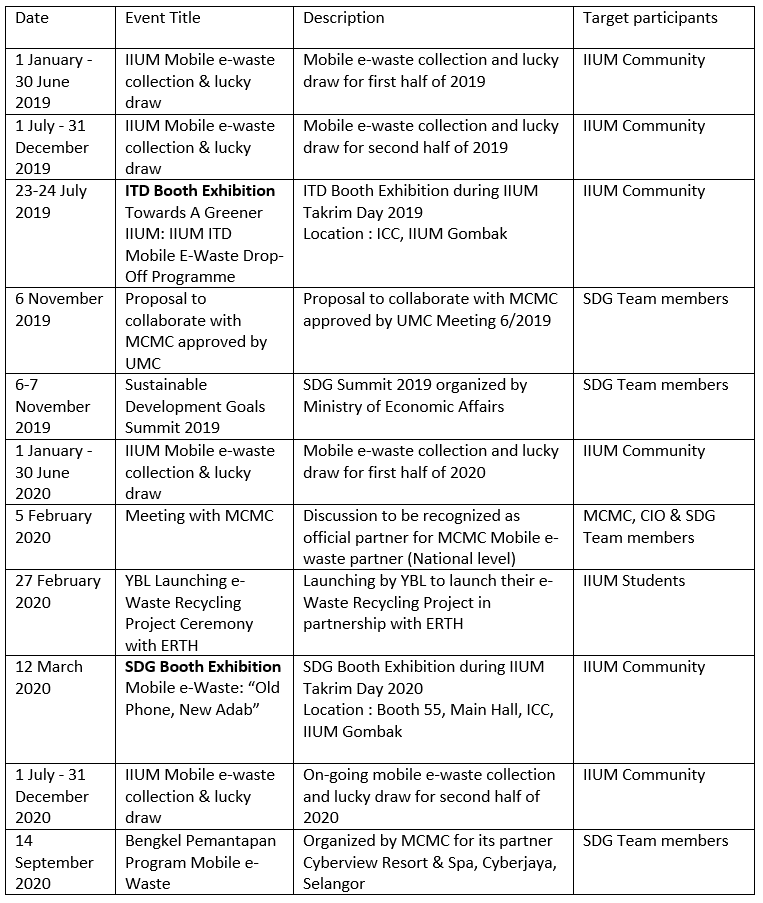MOBILE E-WASTE
This project focuses on changing the adab of disposal of mobile e-waste among the IIUM community.
Tremendous growth of demands on mobile electronic equipment and its disposal after use have become global issues for causing water and land chemical pollution. Proper handling, reuse, refurbish and recycling of these mobile e-waste may save the earth from potential pollution and health hazard.

The term e-Waste or Waste of Electrical and Electronic Equipment (WEEE) covers all types of Electrical and Electronic Equipment (EEE) that have been discarded, broken, non-working or old/obsolete electric electronic appliances such as TV, PC, air conditioner, washing machine and refrigerator.
The term Mobile e-Waste on the other hand specifically refers to any waste generated from SIM-based devices (unwanted small IT and telecommunication equipment) such as laptops, feature phones, smartphones, cameras, power banks, tablets, phablets along with its chargers and accessories.
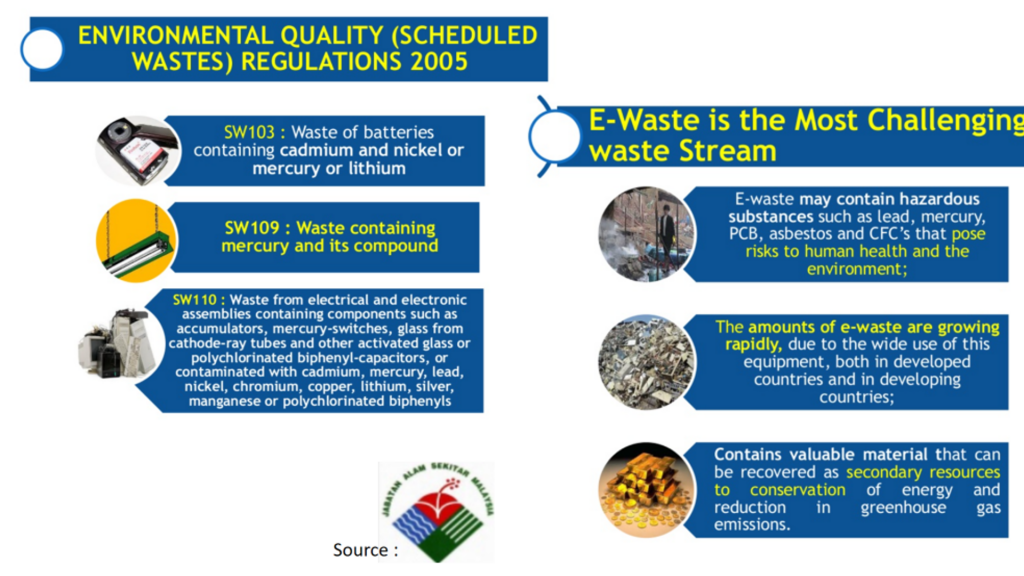
Targeting the IIUM community, the objectives of this project are:
-
ITD to be the point* of collection in IIUM where mobile e-waste is collected and properly disposed at a proper recycling facility.
-
Educating IIUM community regarding the importance of proper recycling method.
-
The environment will be saved as plastics and chemicals in electrical and electronics items will not fill up landfills and contaminate the rivers and pollute the environment.
Dangers of e-Waste
Electrical and electronic devices are made of hazardous, non-biodegradable components such as lead, cadmium and mercury that could potentially harm our health and pollute the environment. That is why these devices have to be properly disposed of by a certified facility when it’s no longer useful. Improper disposal of these devices, often result in substantial harmful chemical exposures that could cause adverse health effects such as:
-
Central nervous system : Affected by antimony, arsenic, beryllium, lead, mercury and polychlorinated biphenyls (PCB)
-
Digestive and urinary system : Affected by antimony, cadmium and lead
-
Reproductive and endocrine system : Affected by brominated flame retardants, dioxins and furans (PCDD/PCDF), DDT and lead
-
Respiratory system : Affected by arsenic, chromium, mercury and vinyl chloride
-
Blood : Affected by lead and mercury
-
Skeleton : Affected by cadmium and lead
-
Immune system : Affected by dioxins and furans (PCDD/PCDF), DDT and PCB
Hence, through this project, IIUM community would be encouraged to deliver their mobile e-waste to the nearest mobile e-waste collection point i.e. ICT Services Help Desk, ITD, IIUM Gombak, Kuantan and Gambang campuses for proper disposal of the subject.
This project supports the following 6 SDG elements:
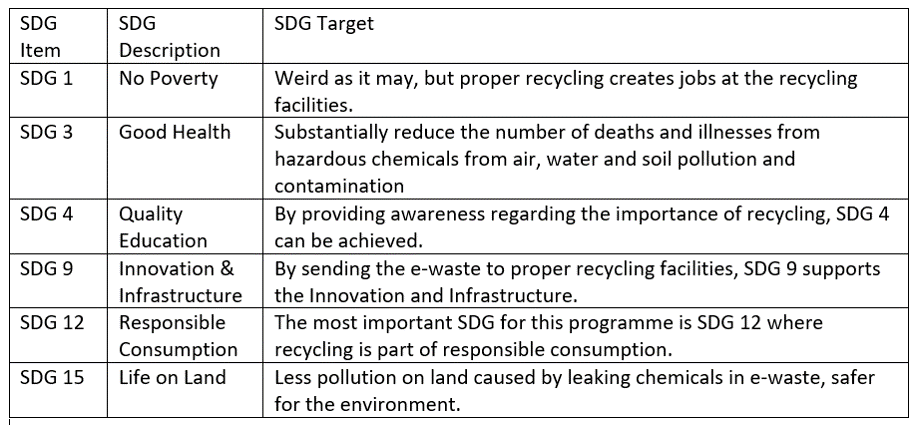
Everybody will be excited when they got new electronic gadgets, but do we bother or even know what to do with the old ones?
Recycling e-waste through the proper channels is important as it ensures that safety measures are followed so toxic chemicals like mercury and lead are not released into the environment.
Recycling e-waste does not only save resources and the environment, but it can also generate income if done on a large scale.
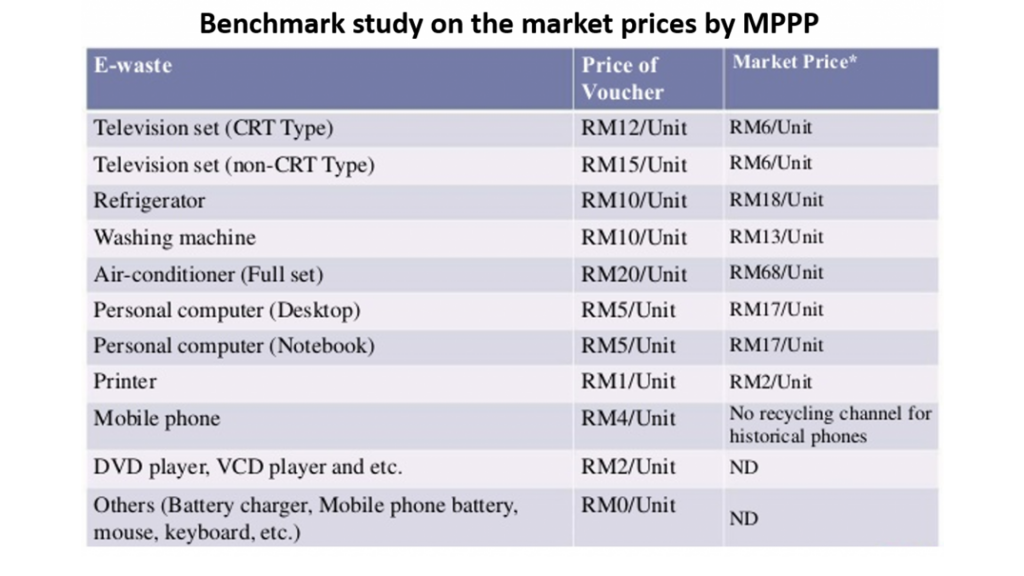


Under this initiative, IIUM shall collect old devices and pass them to and transport the discarded devices to the Full Recovery Facility (FRF) under Malaysian Communications and Multimedia Commission (MCMC).
Users however are responsible for the personal data on their mobile phones and are advised to erase their devices before dropping them off in the collection box at ITD, IIUM. Nevertheless, if users are unable to erase the data from the gadget because it’s not working anymore, the MCMC states that the devices will undergo “data wiping” process at the FRF. And since the device will be dismantled during recycling, any remaining data will technically be impossible to access.
ITD met with representatives from MCMC on 5 February 2020 to finalize the partnership for the Mobile e-Waste Program nationwide.
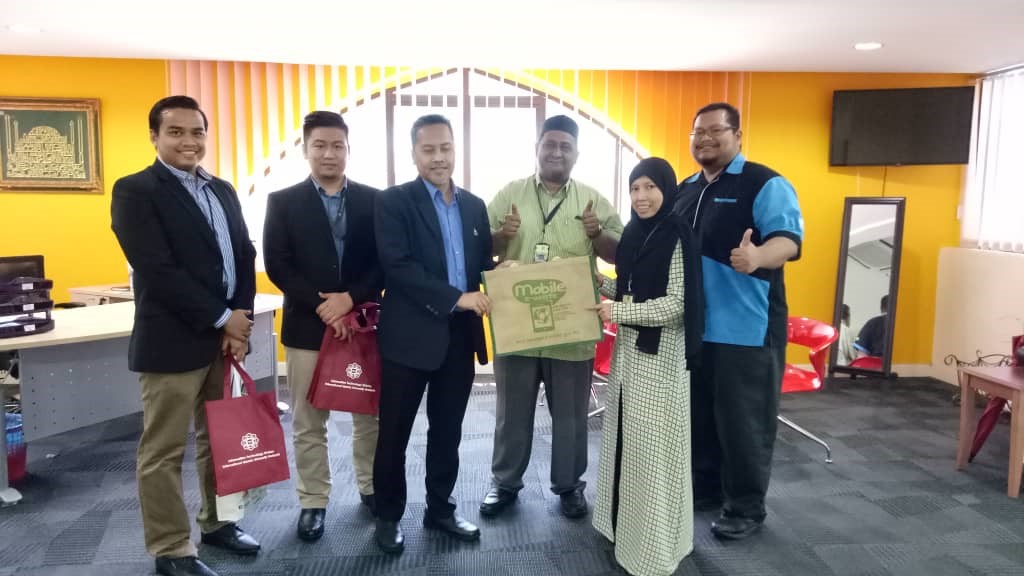
Promotion of the Mobile e-Waste programme during IIUM Takrim Month, 12 March 2020
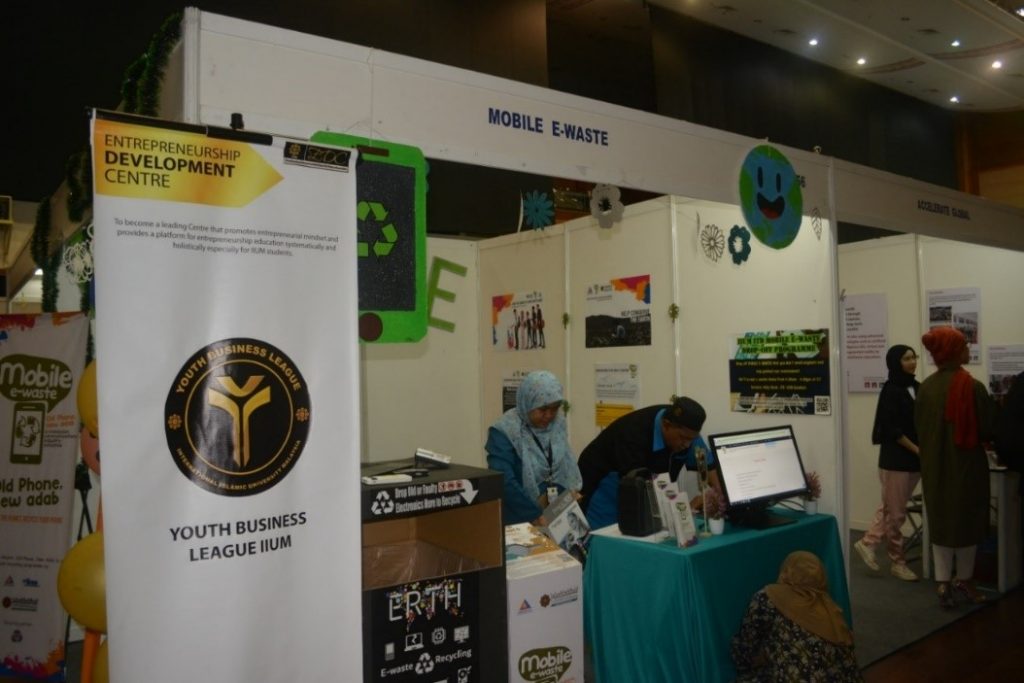
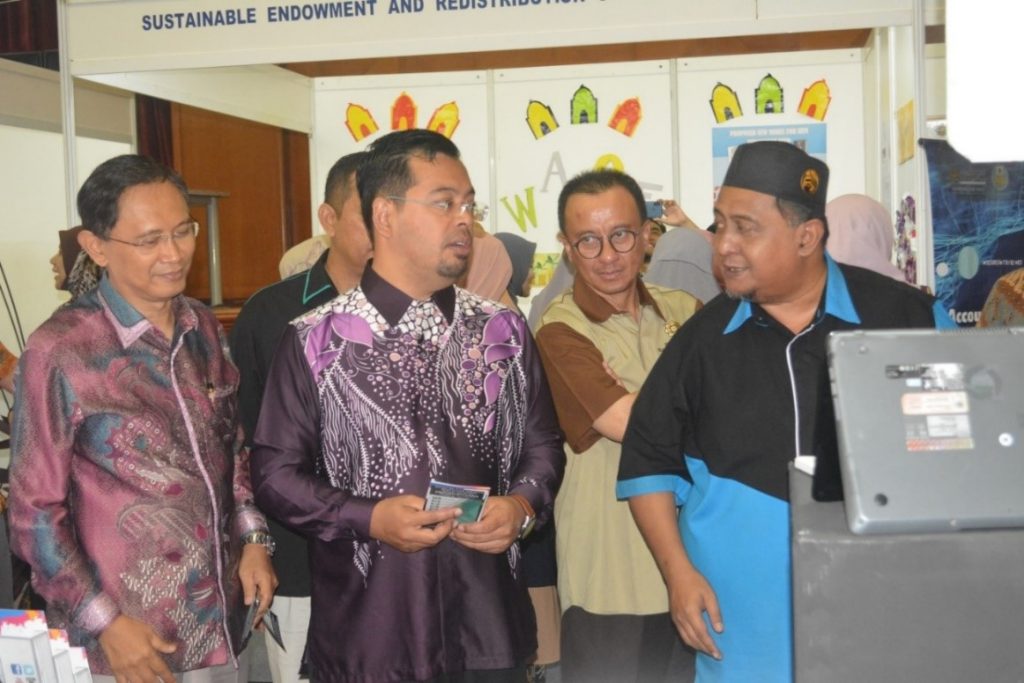
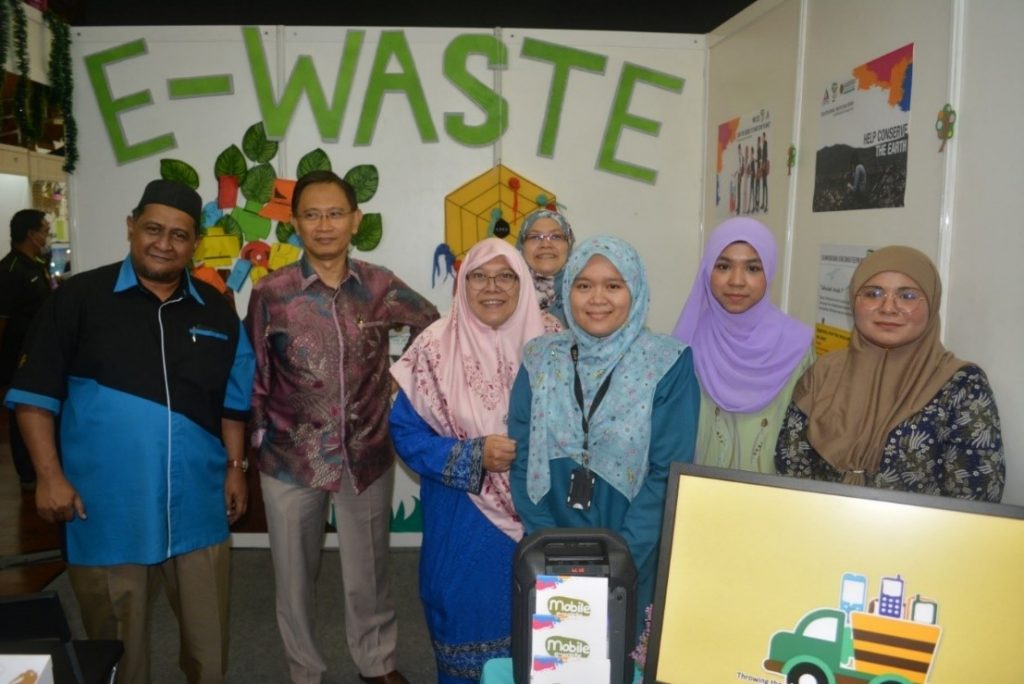
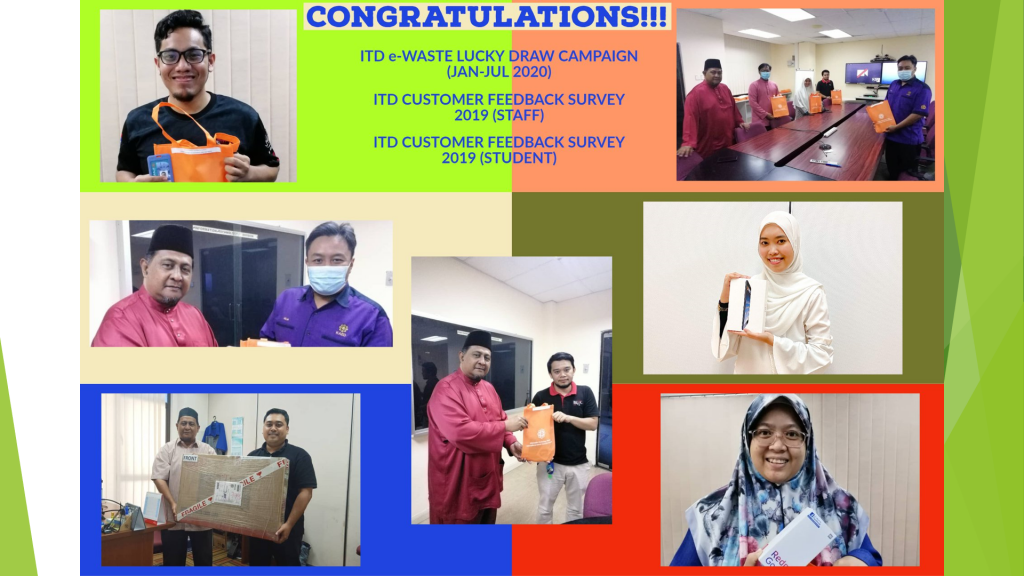
The team managed to fill up the two containers given by MCMC and later the e-waste were disposed of through the recycling company appointed by MCMC.
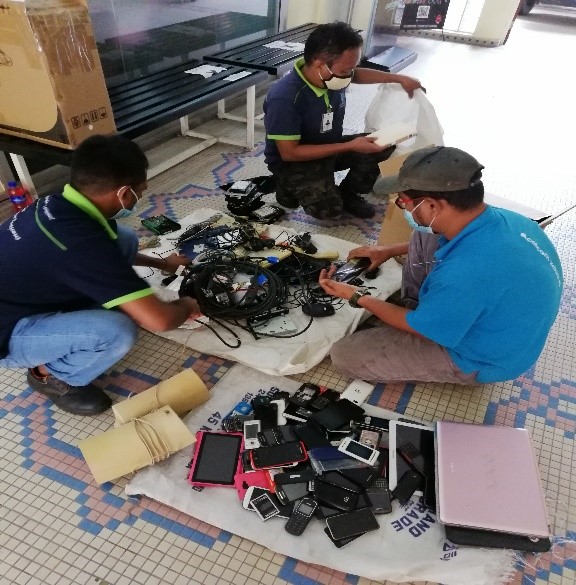
ACTIVITIES CONDUCTED
